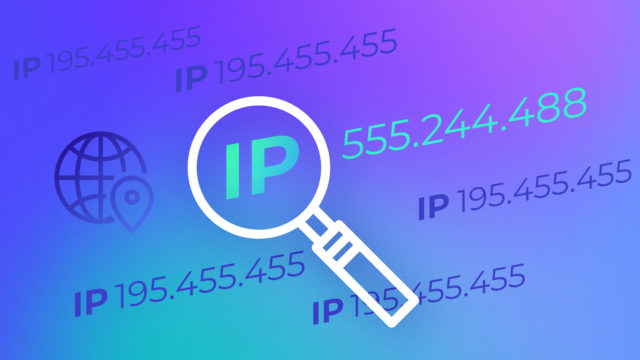IP addresses: everything you need to know
It’s a well-known fact that in order for mail to reach the right addressee’s mailbox, the exact address, including country, municipality, postal code, number and street, must be specified. This way, the post office and its employees know where the mail is to be delivered. The same applies online: any device that is part of an internal or external network needs a clear “number” in order to communicate with other devices and receive data packets from them. However, this IP address looks quite different from the one on our mail.

Find out what these cryptic numbers mean.
Use of IP addresses The IP address is assigned to each interface with the network of any computer equipment (router, computer, smartphone, connected object, embedded system, modem (ADSL, wifi, fibre or cable), network printer, etc.) connected to a network using the IP address. ) connected to a network using the Internet Protocol as the communication protocol between its nodes. This address is assigned either individually by the local network administrator in the corresponding subnet or automatically by the DHCP protocol. If the computer has several interfaces, each one has a specific IP address. An interface can also have several IP address.
Each packet transmitted by the IP application contains the IP address of the sender together with the IP address of the receiver. IP routers route the packets to the destination in a round-robin fashion. Some IP addresses are used for multicasting or broadcasting and are certainly not suitable for addressing individual computers. The anycast technique makes it possible to match an IP address to several computers distributed online. IPv4 addresses are public if they are registered and routable online, and are therefore unique worldwide.
Conversely, private addresses can only be used in a local network, and must be unique only in that network. Network address criticism, carried out in particular by Internet boxes, transforms private addresses into public addresses and makes it possible to access the Internet from a workstation on the private network.
Security threats linked to IP addresses
Cybercriminals can use many techniques to obtain your IP address. These are mainly social engineering and online espionage. Criminals can use social engineering to trick you into revealing your home IP. For example, they may find you on Skype or a similar instant messaging application that uses IP addresses to communicate.

If you chat with strangers via these applications, it is worth noting that you can see their IP address. Criminals use a tool called Skype Resolver that allows them to find your home IP from your username.
